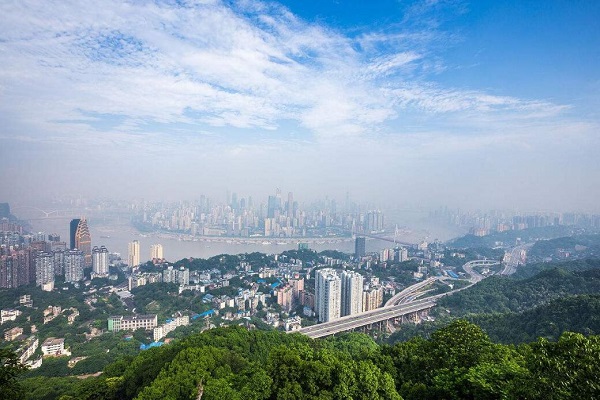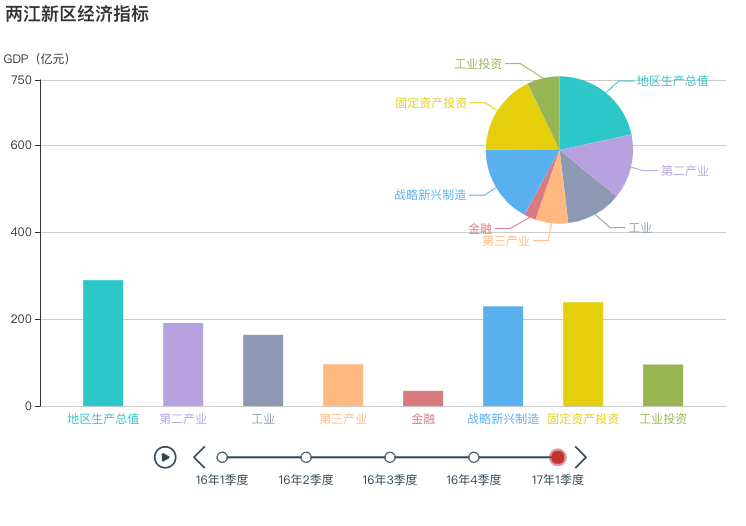Chongqing Liangjiang New Area

Chongqing Liangjiang New Area was established on June 18, 2011. It is the first national level development area in inland China, and the third nationwide after Shanghai Pudong New Area and Tianjian Binhai New Area.
Liangjiang New Area is located north of the Yangtze River and east of the Jialing River. It has three administrative areas: Jiangbei District, Beipei District and Yubei district, with a total area of 1,200 square kilometers, of which 550 square kilometers could be developed.
The State Council has designated five strategic orientations for the new area: demonstration area for scientific development, gateway of the inland region, a pilot zone for urban-rural reform, an advanced manufacturing and modern service center, and a financial center and innovation center in the upstream Yangtze River.

Advantages
It is the first national-level new area in inland China, and the biggest tariff bonded area with the largest imports and exports in inland China.
It is a national transportation hub that combines water, road and air.
It is also an important area for the China-Singapore (Chongqing) Strategic Initiative on Connectivity.
It also plans to apply for free trade zone status.
Gigantic opportunities in western development
Compared with Pudong and Binhai which are coastal open cities, Liangjiang New Area has switched its development orientation from the coast to the inland areas, with the aim of implementing China's western development strategy.
Policy environment oriented with domestic consumption
Liangjiang New Area focuses on domestic consumption in its plans for development. The key industrial projects invested in Liangjiang Industrial Development Zone will benefit from the preferential policies and support in addition to the five major policies - China's western development policy, Innovative Balancing of the Urban and Rural Overall development policy, the State Council's No. 3 about import and export policy, inland bonded port areas policy, as well as the current policies in Pudong coast and the right to pilot implementation.
Opening model of inland openness
The two processing trade modes developed by Liangjiang New Area, i.e. "one end in and one end out" as well as "both ends in," elevate the utilization of foreign capital and attracts leader-type and core-type large-scale transnational enterprises to base their functional projects, such as regional headquarters, R & D institutions, merchandise distribution centers, purchasing centers, settlement centers, etc. in the Liangjiang New Area.
Ecological new area with reform
Liangjiang New Area is more than an industrial development zone, because of its bigger population and better ecological conditions. In terms of the mode of development, Liangjiang New Area adheres to the concepts of low carbon economy and independent innovation and works to strengthen resource conservation and environmental protection - in order to build a new area with a beautiful environment and good ecology.
Industrial parks
Liangjiang New Area Service Trade Industrial Park
Jintai Park, Smart Industrial Park
Financial Industrial Park
Chongqing Internet Industrial Park
Liangjiang New Area Software Industry Center
Liangjing Park, Smart Industrial Park
Yuelai New City
Chongqing Jinshan Idea Base
Shuitu Development Zone
Liangjiang Innovation and Start-ups Building
Chongqing Liangjiang Advertisement Industrial Park
Yufu Development Zone
New Energy Smart Industrial Park
Chongqing Lianglu Cuntan Tariff Bonded Zone
Yufu Industrial Park
Jiangbeizui Financial Center
Longxing Industrial Park
Chongqing Bonded Port Area
Blueprint
By 2020, its industrial added value will reach 200 billion yuan, with that of industrial enterprises above designated size growing to one trillion yuan. Strategic emerging industries are expected to take up more than 35 percent of the total industrial value.
Liangjiang aims to be a modern service industry base that serves both manufacturing and daily life. Its goal is to have a total import and export profile of 400 billion yuan by 2020, with 150 billion yuan from the service trade.
Liangjiang hopes to be a cluster of innovation and science and technology research. It has set the goal that by 2020, R&D will account for more than three percent of the region’s GDP, and that finance will take up more than 13 percent.
Official website
Invest in China Copyright © 2025 China Daily All rights Reserved
京ICP备13028878号-6
 京公网安备 11010502032503号
京公网安备 11010502032503号





